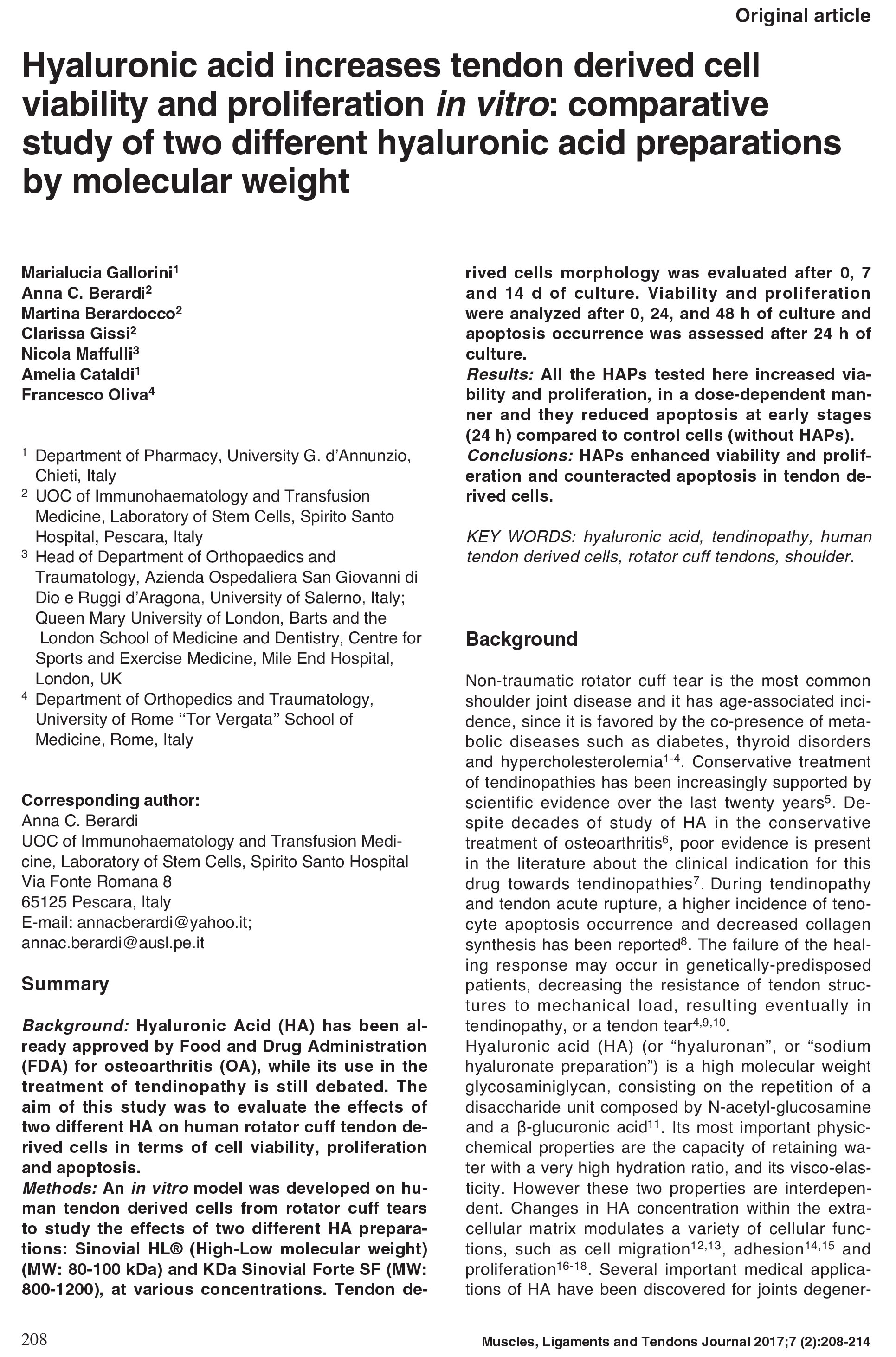
Evaluate the effects of two different HA on human rotator cuff tendon
Hyaluronic acid increases tendon derived cell viability and proliferation in vitro: comparative study of two different hyaluronic acid preparations by molecular weight.
Article specifications
This study was published in 2011 in Journal of Muscles Ligaments Tendons J. (IF 2014:2.95) by Britannia and Italian specialists. The aim of this study was to evaluate the effects of two different HA on human rotator cuff tendon derived cells in terms of cell viability, proliferation and apoptosis. An in vitro model was developed on human tendon derived cells from rotator cuff tears to study the effects of two different HA preparations: Sinovial HL® (High-Low molecular weight) (MW: 80-100 kDa) and KDa Sinovial Forte SF (MW: 800-1200), at various concentrations. Viability and proliferation were analyzed after 0, 24, and 48 h of culture and apoptosis occurrence was assessed after 24 h of culture. Tendon derived cell morphology was evaluated under a light microscope at 0, 7 and 14 d.
Result
The results of this study shows that HAPs enhanced viability and proliferation and counteracted apoptosis in tendon derived cells. HAs induce increase of cells viability and cell proliferation, decrease of apoptosis of tendon derived cells in a dose dependent manner but not related to the molecular weight. Taken together, these results reinforce the physiological role of HAs in the homeostasis of tendons and they have implications for regenerative medicine.
